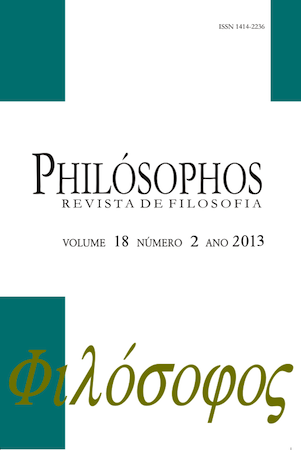THE END OF WITTGENSTEIN'S PHENOMENOLOGICAL PERIOD - A TEMPORAL PERSPECTIVE
DOI:
https://doi.org/10.5216/phi.v18i2.26423Keywords:
memory, source, identity, phenomenonAbstract
First I will explore the importance granted by Wittgenstein, in the middle period, to memory, in the primary/phenomenological world. According to him, memory is the source of time, past, knowledge and identity. The main objective of this article is to present Wittgenstein's reasons for the rejection of the phenomenological project, using as backdrop his analysis about time (and the abandonment of the semantical and epistemological roles granted to memory). For this purpose it will be crucial to understand a false analogy, that according to him was the cause for the quest for an ideal language. This false analogy can be interpreted as the attribution of a mistaken status to memory (in the phenomenological sense), that leads to the illusion of a criteria of exactitude for the phenomenological description. At the end of this article, I will point out briefly the importance of those ideas to the understanding of the so called "private language argument".Downloads
Downloads
Published
How to Cite
Issue
Section
License
Authors who publish in this journal agree to the following terms:
- Authors retain copyright and grant the journal right of first publication, with the work simultaneously licensed under a Creative Commons Attribution License that allows others to share the work with an acknowledgement of the work's authorship and initial publication in this journal.
- Authors are authorized to enter into separate, additional contractual arrangements for the non-exclusive distribution of the journal's published version of the work (e.g., publishing in an institutional repository or as a book chapter), with an acknowledgement of its authorship and initial publication in this journal.















